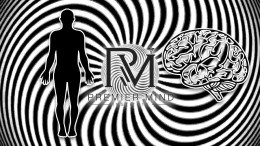Anyone who has ever had a so-called panic attack will never forget it. Racing pulse; shortness of breath; sweating; a feeling of terror; trembling; chest pain. It truly, literally, feels like you’re about to die. Symptoms are often mistaken for a heart attack. When the sufferer rushes to the emergency room, however, the chemical markers for heart attack are absent, and patients may be told that this event is psychological in nature. What many patients hear is, “It’s all in your head.”
That’s both true, and false. It’s false because, in one sense, everything in the world is “all in our heads.”
Not only does our brain control our physical body, it also filters how we perceive the outside world. If you get really metaphysical, there’s no way of knowing what is objectively “real” – we only know what our brain tells us.
On a somewhat less philosophical plane, our brain does indeed control our body. We evolved with a life-saving mechanism in response to danger: when threatened, our brain floods our body with chemicals intended to temporarily provide a kind of super-strength. The so-called “flight or fight” response is well-documented. In extreme situations, people have been known perform extraordinary acts to save their life, or the life of a loved one.
The brain accomplishes this by flooding the body with adrenalin and other related chemicals. If you need to outrun a lion, this is a good thing. If you’re facing a problem at work, not so much.
Almost everyone has experienced stress-related physical symptoms of some kind. Feeling cold, clammy and shaking with nerves before an important presentation, for example. This is similar to what happens with anxiety disorders, but anxiety disorders, and panic attacks, are much more severe.
The difference between a panic attack and an anxiety attack
Anxiety attacks and panic attacks are often used interchangeably, but there are key differences between the two. Anxiety attacks are usually related to a tangible trigger. A stressful event or situation can set off an anxiety attack. Usually, when the stressor goes away, the attack resolves itself.
Panic attacks, however, occur independently to any external trigger, making them unpredictable. Symptoms are more severe, and are much slower to recede.
Perception becomes reality
When the brain feels threatened, these evolutionary responses create real physical symptoms. So, the feelings created by an anxiety disorder or panic attack are real – just as real and physical as if they were the result of an cardiac event. When a person who has suffered from such an attack feels dismissed, it’s not just unhelpful, it’s also missing the point.
The real distinction, and focus point, is targeting the cause of these events. Anxiety attacks are more predictable than panic attacks, but both can feel random, which adds to how terrifying they are. However, the fact that they originate in our brain’s perception of danger is actually good news. Although it’s not easy, we can learn to control or modify our brain.
Medications can provide short-term help, over-riding the brain’s chemical responses. But more sustainable solutions lie in learning how to control the instinct to panic. Cognitive behavioral therapy, deep breathing, meditation, yoga, even exercise, can all make a huge difference to anxiety or panic sufferers. These different approaches can be used together. While it’s not necessary to reach the level of control that some monks allegedly have reached – being able to control automatic bodily functions at will – everyone can learn to slow breathing, slow heart-rate and even release natural endorphins, which promote calm and a sense of peacefulness.
Is it easy to learn these techniques? Well, no. It takes time, patience and dedication to learn them. It’s even more challenging to apply what you’ve learned even under ideal conditions, let alone when an anxiety attack or panic attack hits. But it can be done, and it’s not as hard as you might think. Just believing that you actually can take control of these responses is a leap toward being able to do so. And knowing effective techniques to handle such attacks provides a sense of control – especially in a situation where feeling out of control is central to its terror.
If you suffer from anxiety or panic attacks, don’t just struggle to endure them, or curtail your life to try to avoid them. Working with a psychiatrist and other mental health professionals can give you the tools you need to finally take control. These crippling disorders don’t need to take over your life. Find a mental health specialist, and learn how to teach your brain to work for you. You may not eliminate these events, but you can learn how to manage them, and that can allow you to live a better, happier life.
